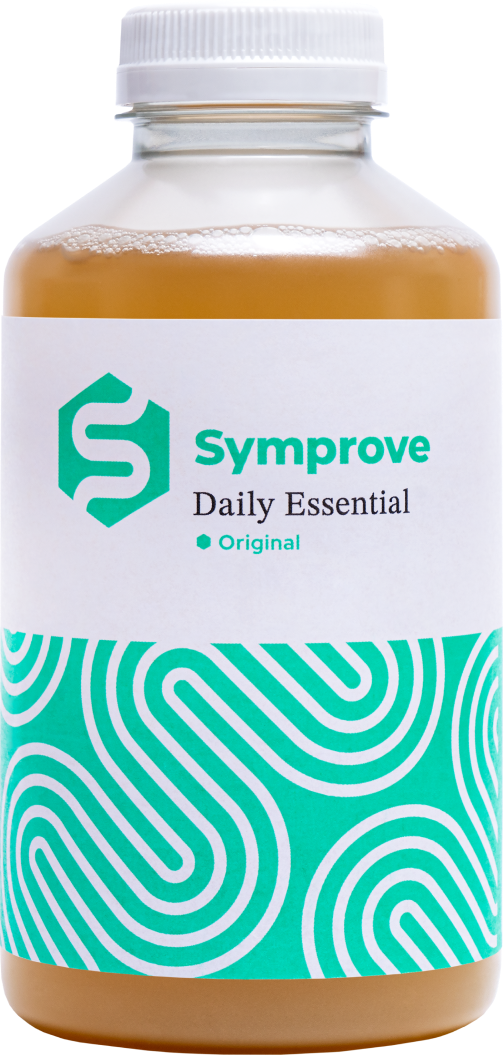Menopause is defined as the stage in a woman’s life when menstruation stops permanently. It is retrospectively diagnosed after absence of periods for 12 months. It represents a time when reproductive function is lost due to depletion of sex hormones including oestrogen and progesterone.
In the UK, menopause usually occurs between 45-55 years old. The mean age is 51 years, although around 10% of women experience menopause earlier (40-45 years), and for 1% of women it can occur prematurely under 40 years old.
Perimenopause is the time period that precedes menopause, usually characterised by irregular menstruation due to fluctuating hormone levels and physical presentation of symptoms, such as hot flushes and night sweats. Perimenopause begins several years before menopause, typically 4-8 years.
During perimenopause, hormonal levels of oestrogen and progesterone do not decline in a linear manner, but rather fluctuate. This often results in unpredictable symptoms that can be more frequent and/or severe on any given day. During menopause, hormone levels continue to fluctuate and decline.
Symptoms
The first common symptoms of perimenopause include changes in the menstrual cycle (e.g. shorter duration, more intermittent or lighter/heavier periods). Additionally, ~60-70% report vasomotor symptoms including hot flushes and night sweats.
Other symptoms include mood disorders, urogenital symptoms, sleep disturbance, and fatigue. Joint aches and pains affect around 60% of women, as well as gastrointestinal disorders such as irritable bowel syndrome (IBS) and functional dyspepsia. Moreover, menopause transition is associated with weight gain and increases in visceral fat distribution.
Managing Symptoms
Diet
Emerging evidence suggests the Mediterranean diet may be beneficial for health during menopause transition. For example, studies have shown that following a Mediterranean diet may be useful in weight management and reducing cardiometabolic risk.
Plant oestrogens (also called phytoestrogens) can have oestrogen-like effects in the body. During menopause, eating phytoestrogens frequently and in sufficient amounts may help with urogenital symptoms, as well as mental health.
In addition, focusing on foods calcium-rich foods, iron-rich foods, vitamin D supplementation (particularly through the winter months).
There is also focus on the gut microbiome and its implications during menopause transition. Research has shown that gut microbial composition differs between pre and postmenopausal women. There is further interest in the estrobolome – the microbes that form part of the gut microbiome that are responsible for the regulation of oestrogen. Exploration of gut microbiome-targeted therapies such as probiotics show promise.
Sleep
Sleep disturbances are common during menopause transition. Indeed, studies have shown that vasomotor symptoms and depression are predictive of poor sleep outcomes.
Maintaining good sleep hygiene practices is important. These include:
- Limiting screen time (phones, laptops, TVs) in the few hours before bed since it can disrupt the melatonin surge (sleep hormone) needed to fall asleep.
- Keep the room dark with dimly lit lights to encourage sleepiness.
- Ensure the room remains cool (around 18 degrees c) at night to mimic the drop in body temperature.
- Keep noises and distractions to a minimum.
- Avoid caffeine and stimulants from mid-afternoon. Limit alcohol intake.
- Avoid unnecessary long napping as it may affect your ability to fall asleep at bedtime.
- Avoid eating too much or feeling hungry before bedtime. Try and finish eating a few hours before going to bed.
- Stretch, breathe and relax - mindfulness, diaphragmatic breathing or gentle stretching
Physical Activity
Research has also shown that aerobic-based exercise may help improve vasomotor symptom severity, as well as weight management.
A recent longitudinal study observed physical activity resulted in healthier blood lipid profiles and body composition in women ages 48-55 years.


